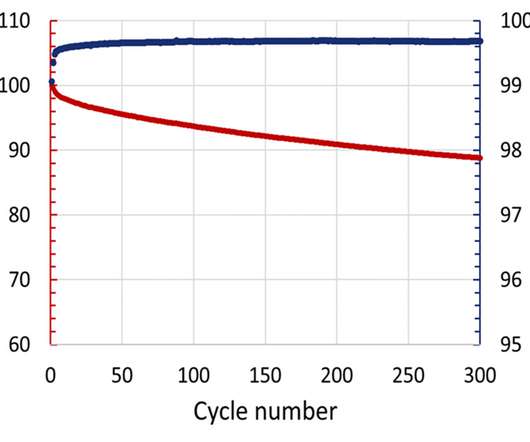Deep insights into sodium-ion batteries using calorimetric methods
Innovation News Network
SEPTEMBER 27, 2022
The Karlsruhe Institute of Technology (KIT) outlines how, through cutting-edge calorimetric methods, they enhance the safety of post-lithium and sodium-ion batteries. The post Deep insights into sodium-ion batteries using calorimetric methods appeared first on Innovation News Network.











Let's personalize your content